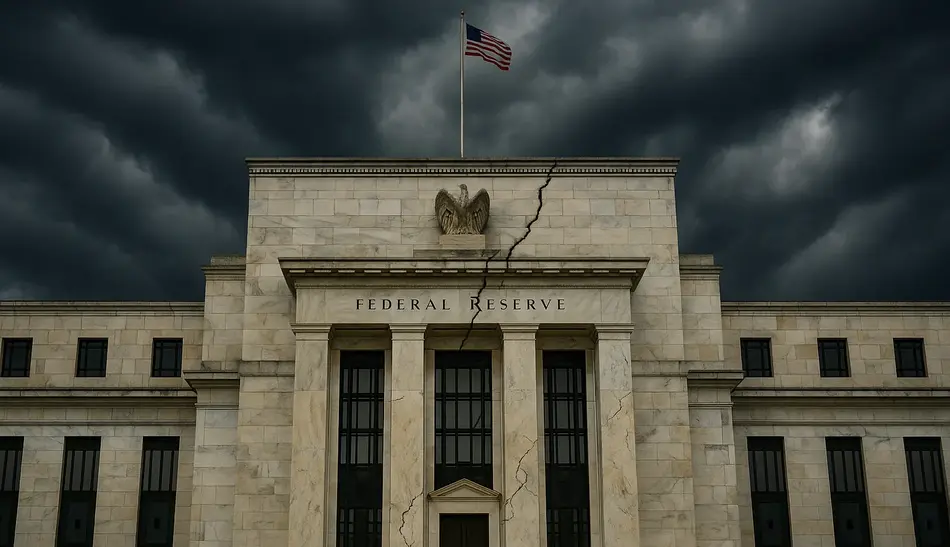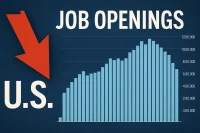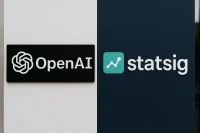The Unprecedented Attack on Federal Reserve Autonomy
The Federal Reserve independence crisis has reached unprecedented levels, threatening the very foundation of American economic stability. As political interference escalates to historic proportions, the consequences for job markets, financial trust, and long-term economic growth become increasingly dire.
The Federal Reserve independence crisis represents one of the most significant threats to American economic institutions in modern history. For over a century, the Federal Reserve has operated with relative autonomy, making monetary policy decisions based on economic data rather than political pressure. This independence has been crucial for maintaining investor confidence and ensuring long-term economic stability, as documented by economic research from leading financial institutions.
However, recent developments have shattered this traditional framework. The current administration’s demand for interest rate cuts of three percentage points—a move no economist anywhere has endorsed—represents a fundamental misunderstanding of monetary policy. This demand, combined with harsh rhetoric directed at Federal Reserve Chairman Jerome Powell and extraordinary efforts to remove sitting Fed governors without due process, has created an environment of unprecedented political interference.
The situation becomes even more concerning when considering the broader implications. Between rumors about other Federal Reserve board members and ominous rhetoric about hijacking the process for choosing regional Federal Reserve presidents, we find ourselves in completely uncharted territory. While markets have yet to show dramatic reactions, the potential for rapid psychological shifts remains a significant concern.
The Dangerous Precedent of Political Interference
The Federal Reserve independence crisis extends far beyond simple policy disagreements. The attempt to fire Governor Lisa Cook without proper cause represents a direct assault on the institution’s governance structure. This is not merely about one individual or even one position—it’s about establishing a precedent that could fundamentally alter how monetary policy is conducted in the United States.
What makes this situation particularly disturbing is the lack of response from traditional Republican leaders who have historically stood up for Federal Reserve independence. Distinguished Republican leaders like Senator Pat Toomey, who served on the banking committee, have previously demonstrated strong support for inflation credibility and Fed autonomy. Yet, when faced with wholesale politicization of the Federal Reserve, these voices remain conspicuously silent.
The financial community’s response has been equally concerning. Prominent members have shown more willingness to criticize other policy proposals than to address the fundamental threat to Federal Reserve independence. This normalization of highly irresponsible behavior represents a dangerous trend that could have far-reaching consequences for the entire financial system.
Looking to Hire in Uncertain Times?
Even during economic and political turbulence, top talent is still searching for opportunities. Reach them now with WhatJobs.
Post a Job Now →Market Implications and Economic Consequences
The Federal Reserve independence crisis carries significant implications for financial markets and economic stability. While markets have not yet shown substantial reactions, several concerning indicators suggest potential trouble ahead. One-year inflation expectations are trending upward, and the spread between 30-year and 10-year bonds has reached levels not seen since previous economic crises. For job seekers navigating this uncertain economic environment, understanding job search strategies in volatile markets becomes increasingly important.
The administration’s focus on lowering mortgage rates and car loan rates through Federal Reserve policy may ultimately prove counterproductive. Markets are already pricing in expected rate cuts, which means that if cuts are delivered as anticipated, they may not have the substantial impact on long-term rates that policymakers hope for. More importantly, if the Federal Reserve appears to be moving toward the administration’s preferred policy of easy rates above all else, long-term rates may actually rise, taking mortgage rates up with them.
This pattern mirrors what we saw during the politicized Federal Reserve of the 1970s, a period that was successfully avoided during the tenures of Chairmen Volcker and Greenspan. The potential return to such politicized monetary policy represents a significant threat to economic stability and could undermine decades of progress in establishing credible monetary policy.
The Bureau of Labor Statistics Crisis and Data Trust
The Federal Reserve independence crisis is compounded by parallel attacks on economic data integrity. The recent firing of the Bureau of Labor Statistics commissioner following disappointing jobs numbers represents another front in the assault on economic institutions. This move has created widespread concern about the politicization of economic data, with private sector companies like Revelio Labs stepping in to provide alternative workforce data. The International Monetary Fund has warned about the dangers of politicizing economic institutions and the long-term consequences for global financial stability.
The Bureau of Labor Statistics faces significant challenges beyond political interference. The agency’s resources have not kept pace with the scope of its responsibilities, with funding declining approximately 20% since 2010 when adjusted for inflation. The proposed fiscal 2026 budget would cut an additional 8%, further straining the agency’s ability to provide accurate, timely economic data.
Despite these challenges, the Bureau of Labor Statistics has continued to innovate and improve its data collection methods. The agency now receives about 58% of its reports through electronic data interchange systems, with additional data collected through computer-assisted telephone interviews and other innovative techniques. However, these improvements require adequate resources and personnel to be fully effective.
Looking to Hire in Uncertain Times?
Even during economic and political turbulence, top talent is still searching for opportunities. Reach them now with WhatJobs.
Post a Job Now →The Global Context and International Concerns
The Federal Reserve independence crisis has not gone unnoticed by international observers. European Central Bank President Christine Lagarde has warned that attempts to control the Federal Reserve pose a “very serious danger” to both the U.S. and global economies. This international concern reflects the understanding that Federal Reserve independence is crucial not just for the United States, but for global financial stability.
The erosion of Federal Reserve independence could have cascading effects throughout the global economy. As the world’s most important central bank, the Federal Reserve’s decisions influence monetary policy around the world. If its independence is compromised, other central banks may face similar pressures, potentially leading to a global race to the bottom in terms of monetary policy credibility.
The Path Forward: Restoring Trust and Independence
Addressing the Federal Reserve independence crisis requires a multi-faceted approach that goes beyond simply restoring the status quo. The current situation has revealed vulnerabilities in the system that must be addressed to prevent future politicization attempts.
First, there must be clear, bipartisan support for Federal Reserve independence. This requires leaders from both parties to speak out against political interference and to defend the institution’s autonomy. The silence from traditional Republican leaders must end, and the financial community must find its voice in defending the institutions that underpin the financial system.
Second, the Federal Reserve must continue to demonstrate its commitment to data-driven decision making. This means maintaining transparency in its decision-making process while resisting political pressure. The institution must show that it can weather political storms and emerge stronger on the other side.
Third, there must be a renewed focus on the importance of economic data integrity. The Bureau of Labor Statistics and other statistical agencies must receive adequate funding and support to continue providing accurate, timely economic data. This data is essential not just for Federal Reserve decision-making, but for the entire economy.
Looking to Hire in Uncertain Times?
Even during economic and political turbulence, top talent is still searching for opportunities. Reach them now with WhatJobs.
Post a Job Now →The Long-Term Implications for Economic Growth
The Federal Reserve independence crisis threatens not just short-term market stability, but long-term economic growth prospects. When businesses cannot trust economic data or monetary policy decisions, they become more cautious in their investment decisions. This caution translates into higher costs, reduced efficiency, and slower economic growth.
The uncertainty created by politicized monetary policy makes it difficult for businesses to plan for the future. When companies are uncertain about the direction of interest rates or the reliability of economic data, they hedge their bets, leading to suboptimal resource allocation and reduced economic efficiency. This uncertainty particularly affects career planning and professional development as businesses become more cautious about hiring and investment decisions.
Over time, this uncertainty can actually reduce the economy’s growth rate. When businesses don’t know how the economy is operating because they distrust the data, they cannot function efficiently or use their resources at their highest and best use. This represents a significant long-term cost that extends far beyond any short-term political gains.
Conclusion: A Critical Moment for American Economic Institutions
The Federal Reserve independence crisis represents a critical moment for American economic institutions. The choices made in the coming months and years will determine whether the United States maintains its position as the world’s most stable and reliable economy, or whether it follows the path of other nations where economic institutions have been politicized to the point of ineffectiveness.
The stakes could not be higher. The Federal Reserve’s independence is not just a matter of institutional pride or academic interest—it’s a fundamental requirement for economic stability and growth. Without it, the United States risks losing the trust of investors, businesses, and international partners, with consequences that could last for generations.
The time for action is now. Policymakers, business leaders, and citizens must come together to defend the institutions that have made the American economy the envy of the world. The Federal Reserve independence crisis is not just a political issue—it’s an economic imperative that affects every American’s financial future. For those seeking employment opportunities during these uncertain times, exploring employment opportunities in stable sectors can provide some security amidst economic volatility.
Frequently Asked Questions
What is the Federal Reserve independence crisis?
The Federal Reserve independence crisis refers to unprecedented political interference in Federal Reserve decision-making, including attempts to remove governors without cause and pressure to implement politically motivated monetary policy rather than data-driven decisions.
Why is Federal Reserve independence important for the economy?
Federal Reserve independence allows the central bank to make monetary policy decisions based on economic data rather than political pressure, which is crucial for maintaining investor confidence, ensuring long-term economic stability, and preventing inflation.
How does the Federal Reserve independence crisis affect job markets?
The crisis creates uncertainty in economic data and monetary policy, making it difficult for businesses to plan investments and hiring decisions. This uncertainty can lead to reduced job creation and slower economic growth.
What are the long-term consequences of politicizing the Federal Reserve?
Politicizing the Federal Reserve can lead to higher inflation, reduced investor confidence, slower economic growth, and a loss of international trust in American economic institutions, with consequences that could last for generations.
Case In Point
Consider Sarah, a small business owner who runs a manufacturing company with 50 employees. For the past decade, she has relied on Federal Reserve interest rate decisions and Bureau of Labor Statistics employment data to make crucial business decisions about expansion, hiring, and investment.
When the Federal Reserve independence crisis began, Sarah noticed something troubling: the economic data she had always trusted seemed less reliable. Job market reports showed conflicting information, and interest rate decisions appeared to be driven more by political pressure than economic fundamentals.
This uncertainty forced Sarah to delay a planned expansion that would have created 10 new jobs. She couldn’t risk investing in new equipment and hiring additional workers when she couldn’t trust the economic indicators that had always guided her business decisions. The Federal Reserve independence crisis wasn’t just a political issue for Sarah—it was directly impacting her ability to grow her business and create jobs for her community.
Sarah’s story illustrates how the Federal Reserve independence crisis affects real people and businesses across America. When economic institutions lose their independence and credibility, the consequences ripple through every level of the economy, from Wall Street to Main Street.




